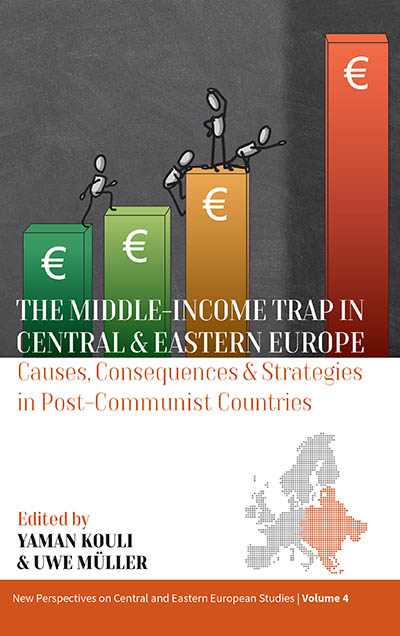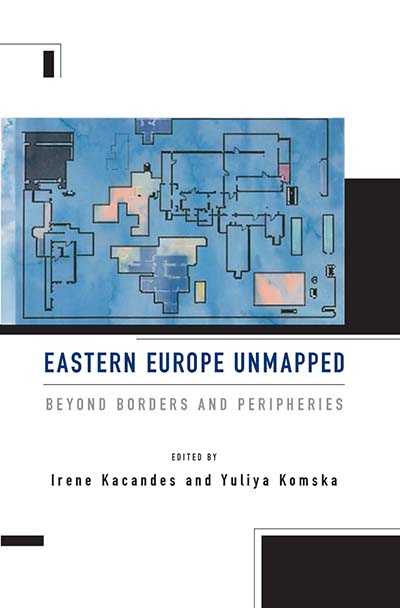
Series
Volume 4
New Perspectives on Central and Eastern European Studies
See Related
History JournalsEmail Newsletters
Sign up for our email newsletters to get customized updates on new Berghahn publications.
The Middle-Income Trap in Central and Eastern Europe
Causes, Consequences and Strategies in Post-Communist Countries
Edited by Yaman Kouli and Uwe Müller
322 pages, 34 figs., 28 tbls., bibliog., index
ISBN 978-1-80539-181-4 $135.00/£104.00 / Hb / Published (November 2023)
eISBN 978-1-80539-395-5 eBook
Description
Since the 1990s, the economic development of Central and Eastern Europe has maintained high economic growth rates, seemingly leading to an era of prosperity. This very positive vision of future economic success, linked to current political backlash and a long history of economic adversity, is a thin veil of the economic “way west” for so-called transition countries. The Middle-Income Trap in Central and Eastern Europe examines the reality of the diminishing marginal utility of further international investments alongside the pitfalls of higher government spending to cultivate innovation which ultimately makes foreign capital less attractive. In this volume authors from diverse disciplinary perspectives reflect on current debates surrounding the developmental bottlenecks in East-Central Europe. Their common goal is to analyze the manner of socio-economic transformation, question of the relevance and impact of the “middle-income trap” and identify possible ways to escape it.
Yaman Kouli was a visiting scientist in 2018 and 2019 at the UMR Sirice 8138 in Paris, funded via a scholarship from the Alexander von Humboldt-Foundation. From October 2019 on, he has worked as a research assistant at the Heinrich-Heine-University in Düsseldorf. His fields of expertise are Poland’s economic history during the 20th century, the knowledge-based economy and European economic integration before 1914.
Uwe Müller has been a senior researcher at the GWZO/Leibniz Institute for the History and Culture of Eastern Europe since 2011. He gained a PhD in economic history at the Humboldt University in Berlin. He has researched and taught at the Humboldt University, the European University Viadrina in Frankfurt (Oder) and the Saarland University in Saarbrücken. His research interests include the economic history of Eastern Europe from the middle of the 19th century to the present day with a special focus on the integration of this region in the European and world economy.
Subject: History: 20th Century to Present
Area: Central/Eastern Europe
Contents
Download ToC (PDF)




